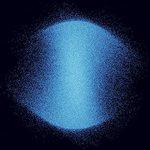
Deafheaven Infinite Granite
(Sargent House)
Do you know what one of my most niche, precious loves in life is? Autumn music. Specifically, albums that are best—or at least more effectively—experienced during that unique time of year when you finally turn off your car’s A/C, when flora dims in color, and when fauna commences its retreat inward. Standout records here are Joanna Newsom’s monolithically stunning Have One on Me, Nick Drake’s debut masterstroke Five Leaves Left (though many might opt for his equally brilliant swansong Pink Moon), and Animal Collective’s bizarro folk tour-de-force Sung Tongs. It’s a list that I think is personal in nature and can vary widely for different music fans, depending on their preferences in the genre.
And in these dog days of summer, it seems almost serendipitous that a band like Deafheaven, known for their fiery, feverish, ferocious blend of black metal, shoegaze, and post-rock, would release an album that I can proudly place on my shortlist of Great Albums for Fall. Infinite Granite, the group’s fifth full-length studio effort, sees George Clarke, Kerry McCoy, and company turning in their screamed vocals, blistering tempos, and eardrum-obliterating tremolos for a more contemplative approach to blackgaze. Like Swans’ Leaving Meaning, it’s the sound of a band transforming into something subtle but beautiful—the same way trees do when their foliage fades from green to orange.
Indeed, those who were initially smitten with the group’s earlier records solely because of their more overt black metal stylings might find this new LP harder to enjoy. And that’s completely understandable: I could see how a listener who adores Sunbather (or, for that matter, New Bermuda) for its raw power would be suspicious of Granite’s heavier emphasis on atmosphere and texture, something that’s apparent from the dawning seconds of opening track Shellstar. In other words, if a day one Deafheaven fan disapproved of Infinite Granite and went straight back to spin Roads to Judah for the umpteenth time, I wouldn’t hold it against them.
But I also think this speaks to Deafheaven’s willingness to, put simply, push their sound forward, or at least move on at the risk of pissing off even more metal purists than they already have—to let some of their other influences take a turn in the proverbial driver’s seat. Because compared to a dizzying album like Sunbather, Granite finds peace in space. That’s not to say there aren’t plenty of gobsmacking, undeniably-Deafheaven moments here, such as lead single Great Mass of Color, with Daniel Tracy’s crashing cymbals and Clarke’s passionate vocals soaring over a breathtaking wash of guitar riffs and synthesizers. But it is to say that the great moments on Infinite Granite hit you like a shower of freshly fallen leaves in deep woods, as opposed to a barrage of sunbeams and foamy waves on a beach.
13 September, 2021 - 04:24 — Jackson Glassey